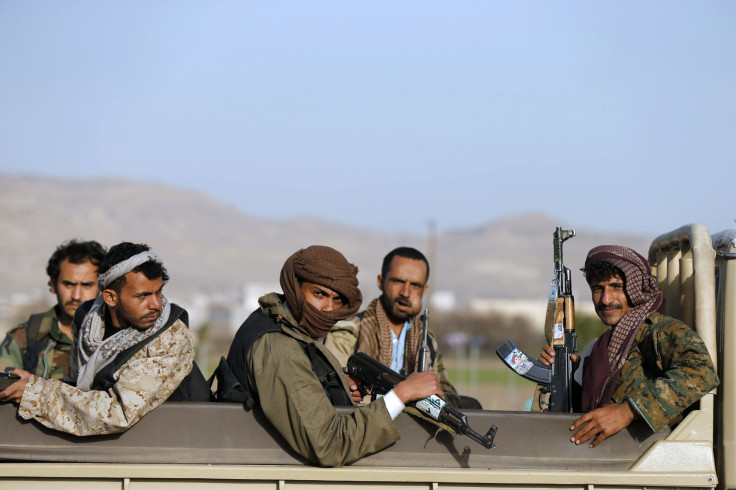Yemen Crisis: Houthi Takeover Did Al Qaeda 'A Favor' As Rising Sectarianism Boosts Extremist Group

Yemen’s powerful al Qaeda faction stands to gain from the advances made by the country’s Shiite Houthi rebels, despite the bitter enmity between the two rival insurgent groups. The Houthis’ effective control of the Yemeni government following the resignation of President Abd-Rabbu Mansour Hadi on Thursday will likely embolden Al Qaeda in Yemen by fueling rising sectarianism while undercutting the power of the country’s military.
The Houthis have done al Qaeda in the Arabian Peninsula (AQAP) a great favor, said Farea al-Muslimi, a visiting scholar at the Middle East Center at the Carnegie Endowment for International Peace in Washington, D.C. “They empower each other. One gets stronger, the other gets stronger,” he said in a telephone call Wednesday from the capital Sanaa.
Al Qaeda in Yemen is widely considered the most dangerous of the group's affiliates. The Sunni Islamist militant group’s harsh tactics have not made it a popular force across Yemen. However, the rise of the Houthi movement and its direct threat to the Sunni-controlled order in the country will finally give AQAP the kind of cause it needs to widen its appeal and rally more widespread support, Middle East experts said.
Yemen’s many entrenched geographical and tribal divisions have long contributed to instability in the country. The fractured nature of the Sunni political leadership was one of the key factors enabling the rise of the Houthis. In September, the insurgent group entered Sanaa largely unopposed from northern Yemen and have since tightened their grip on the city, culminating in the seizure of the presidential palace on Wednesday in what some governments in the region decried as a coup. The group's tense standoff with the government led to the resignation of Yemen's president and his government Thursday.
While the Houthi movement has long placed its focus on challenging Yemen’s central government, it has also increasingly confronted AQAP, whom the Houthis have sworn to eradicate. The Houthis have recently expanded their campaign against al Qaeda in Yemen in parts of the center and south of the country, according to the Huffington Post.
The showdown between the Houthis and AQAP is set to create the first sectarian war in Yemen's history, said al-Muslimi. “The next generation of AQAP will be sectarian rather than ideological,” he said. “The Houthis have handed them a sectarian motive for their war.”
This will likely strengthen al Qaeda as Sunni tribes across the country find themselves by default on the side of the extremist group, one of the only forces within Yemen willing or able to counter the expansion of Shiite control, according to an Al Jazeera report.
The Houthis and the Yemeni military have been united in their effort to fight AQAP for years. But the crisis and divisions in the capital will likely weaken the military, compromising its ability to combat al Qaeda in Yemen, said Anthony H. Cordesman, the Burke Chair in Strategy at the Center for Strategic and International Studies in Washington, D.C.
The Yemeni military has received millions of dollars in U.S. aid in recent years as part of an effort to contain al Qaeda's expansion in the country. Following the resignation of the Yemeni government Thursday, it is not clear how Yemen’s government will address the threat of AQAP, the “most aggressive of all the jihadist movements,” according to Cordesman.
This could pose a major test for international leaders as AQAP attempts to widen its reach past Yemen’s border. The group took responsibility for the attacks this month on the Paris offices of French satirical magazine Charlie Hebdo. The U.S. intelligence community is actively working to track down AQAP’s leadership amid fears that they will continue to plot attacks on the West, reported CNN.
But the Houthi's takeover over the Yemeni government in recent days suggests the ongoing battle against al Qaeda in Yemen will not get easier anytime soon. “Essentially you have something very close to a failed state and you don't have many good options,” said Cordesman. “In the coming months this will play out tragically.”
© Copyright IBTimes 2024. All rights reserved.






















